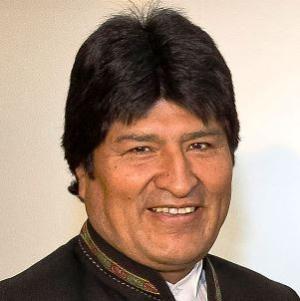The cofounder of the Chicago Recovery Alliance and pioneer of naloxone for overdose reversal passed unexpectedly this week at age 59.
It isn't the Wild West anymore.
And in the end, consumers will pay the price.
The pro-Duterte forces have noticed our efforts to stop his killing campaign.
Oklahoma continues to grapple with its new medical marijuana program, Utah foes try a novel strategy to block a medical marijuana initiative, and more.
Drug overdose deaths hit another record high last year, the DEA is cutting prescription opioid quotas again, California pot tax revenues are not meeting expectations, and more.
A federal judge sides with a New Jersey company against a medical marijuana-using worker, Egypt bans "synthetic hashish," a Mexican state advances a bill to decriminalize opium production, and more.
The world loses a global drug reformer, the US Senate could act on a marijuana measure this week, they're still sorting out medical marijuana in Oklahoma, and more.
Prosecuting opioid dealers for overdose deaths is counterproductive "policy theater," concludes a new study; a key New Jersey politician says the votes are there to pass a legalization bill, and more.
Louisiana doctors could soon treat more medical marijuana patients, black VA patients on opioid therapy are more likely to be drug tested and have their treatment halted for illicit drug use than whites, a Georgia judge throws out a heroin murder conviction, and more.
Harm reductionists, drug policy reformers, and many others are mourning the unexpected passing of Dan Bigg at age 59 this week.

Dan Bigg (courtesy Suzanne Michelle)
Dan, a cofounder and the long-term executive director of the
Chicago Recovery Alliance, played a leading role advancing syringe exchange in the United States, and more recently naloxone distribution to prevent heroin overdoses. He was a 2017 Chicago Magazine
Chicagoan of the Year, and received the Drug Policy Alliance's
2015 Norman ZInberg Award.
The Fix called Dan "The Patron Saint of Harm Reduction" in a notable 2014 interview, and the Chicago Tribune described his work as "revolutionary." The AIDS Foundation of Chicago and The Harm Reduction Coalition are among the organizations publishing tributes. Of course numerous tributes can be found on Facebook and Twitter.
I didn't realize, but learned from a colleague quoted in the Chicagoan, CRA was the first place to distribute naloxone for overdose reversal. The Drug Reporter interviewed Dan about naloxone in 2010, and he gave extensive comments to our own newsletter in 2008.
On a personal note, since meeting Dan in 1994 I saw him many times at conferences. In hotels full of supportive people, he stood out for his supportiveness. Doubtless many others feel the same way.
As a drug policy reformer I also found it empowering that someone with that kind of stature, in his community and in public health, not only believed in ending prohibition and its ultimate necessity for harm reduction, but was willing to say so.
Family has asked for donations to Team CRA for the AIDS Run & Walk Chicago.
back to top
Last week, the good citizens of Mississippi's Tallahatchie County got a rude shock. The county's top lawmen, Sheriff William Brewer, was at the courthouse, which was not unusual. This time, though, he was dressed not in his sheriff's uniform but in an orange prisoner jumpsuit to face federal criminal drug trafficking charges.
According to a federal indictment, over a period of 15 years, Sheriff Brewer had conspired with a local ne'er-do-well to have that person repeatedly rob drug dealers, give stolen cash to Brewer, sell the drugs, then give Brewer part of the proceeds. In return, that man got a free ride for his own methamphetamine trafficking activities. Well, until he started coming up with his own meth supply. When Brewer found out about that, he started demanding a $500 or $600 payment every week for the dealer to carry out his work unimpeded. The dealer eventually became an FBI informant and took his former partner down.
Brewer has now resigned as sheriff, and he has not yet been convicted of anything, but his arrest on drug and extortion charges is yet another disturbing example of the corrosive impact on law enforcement of enforcing drug prohibition.
County sheriffs are unique figures in the American law enforcement landscape. Unlike police chiefs or the heads of federal law enforcement agencies, they are typically elected, not appointed. They are subject to little effective oversight except from voters at the polling booth. They control policing not only of all county territory not handled by municipal police forces, but also the county jail and the policing of the courthouse. They control their own law enforcement fiefdoms.
And they sometimes turn to the dark side. For the past dozen years, Drug War Chronicle has covered drug prohibition-related law enforcement misbehavior in a recurring feature, "This Week's Corrupt Cops Stories." During that period, hundreds of police officers, DEA agents, FBI agents, Customs and Border Patrol agents, jail and prison guards, and sheriff's deputies have gone down for one or more of the myriad forms of dirty drug policing.
Law enforcement misbehavior has run the gamut from planting drugs on innocent people to ripping off drug dealers and selling their stashes to sexual coercion to lying on search warrants to lying in court to pocketing cash from drug busts to embezzling asset forfeiture funds, and even stealing drugs from those drug dropoff boxes.
It's bad enough when the people charged with enforcing the law flout it, but it's arguably more disheartening and corrosive when the corrupt cops are the very people charged with heading law enforcement offices, such as county sheriffs. There are more than 3,000 of them, holding office in every state except Alaska (no county governments), Connecticut (replaced by State Marshals), and Hawaii (deputies serve in a division of the Department of Public Safety). The vast majority of them are honest law enforcement professionals.
But some are notoriously not. Each year, one or two or three county sheriffs find themselves on the wrong side of the law because of drugs, whether it's stealing them, selling them, or gobbling them down themselves. And sometimes, when they break bad, they do so in a spectacular fashion. Here are a half-dozen of the most outrageous from the past decade alone:
Oklahoma's Custer County Sheriff Mike Burgess Burgess was hit in 2008 with a 35-count indictment charging him with coercing and bribing female inmates to participate in sex acts. He was hit with 14 counts of second-degree rape, seven counts of forcible oral sodomy, and five counts of bribery by a public official, among other charges. A federal lawsuit filed by 12 former inmates alleges that Burgess and his employees had them participate in wet T-shirt contests and gave cigarettes to inmates who would flash their breasts. Another prisoner alleged she was given trusty status after agreeing to perform a sex act on Burgess, but lost that status when she later refused. After a jury trial, now former Sheriff Burgess was convicted of 13 felonies, including five counts of second-degree rape and three counts of bribery by a public official. Testimony included that of several former female inmates who testified they feared they would be sent to prison if they did not provide sexual favors to the sheriff, as well as two female drug court participants. Burgess sexually assaulted one of them in his patrol car after arresting her for a drug court violation. In March 2009, he was sentenced to 79 years in prison.
Texas's Montague County Sheriff Bill Keating. Another badge-wearing pervert, Keating, 62, went down for a November 2008 drug raid at a home where the victim and her boyfriend lived. The boyfriend was arrested on outstanding warrants and removed by sheriff's deputies, who then searched the house and found meth paraphernalia. Sheriff Keating shooed the remaining deputy out of the bedroom, closed the door, and told the victim, "You are about to be my new best friend." He then threatened to arrest her on drug charges unless she "assisted" him by performing oral sex on him on multiple occasions and becoming a snitch for him. Keating pleaded guilty in that case in January 2009, but was then indicted along with nine jail guards -- seven women and two men -- for official oppression over allegations that the county jail was like Animal House. That indictment features multiple allegations of guards and inmates doing drugs and having sex with each other under Keatings' watch. Keating was looking at up to 10 years in prison on the original charge when he died of a heart attack in July 2009. The federal charges against him were subsequently dismissed.
Illinois's Gallatin County Sheriff Raymond Martin. Sheriff Martin found himself in hot water in 2009, when he was indicted on federal marijuana trafficking charges after being videotaped repeatedly providing pounds of marijuana to a local man, who would sell the weed and then give Martin the proceeds. That man became an informant for the DEA after Martin threatened him with death when he said he wanted out. It only got worse from there. While in jail awaiting trial, Martin, his wife, and their 20-year-old son were all arrested again, this time on solicitation of murder charges for plotting to knock off the guy who ratted them out. In September 2010, Martin was convicted of 15 counts in the drug trafficking and murder-for-hire scheme. He was sentenced to two life terms in federal prison in January 2011.
South Carolina's Florence County Sheriff E.J. Melvin. The only black sheriff on this list, Melvin was indicted on dozens of federal charges along with 11 others in 2011 for a massive and complex cocaine trafficking conspiracy. He was accused of dealing cocaine from his official vehicle, extorting money from drug dealers for protection or to get reduced charges. State police agents testified that they give Melvin a list of possible drug dealers, only to have him tip them off and arrange to get payments from them to keep the agents away. In addition to the massive cocaine conspiracy, involving multiple kilograms of the drug over a multi-year period, he was also accused of ripping off $5,000 in victim assistance funds for personal use. He ended up convicted on 37 of 43 counts and is now serving a 17-year federal prison sentence.
Kentucky's Whitley County Sheriff Lawrence Hodge. Hodge was indicted on both state and federal charges in 2011 for stealing around $350,000 over a seven-year period, including $100,000 he claimed was used in drug investigations. That wasn't all: Hodge was also charged with ripping off drug dealers and then funneling them to a local attorney. He would get a $50,000 kickback, the department would get a $50,000 "donation," and the dealers would get more lenient treatment. Oh, and he admitted to being strung out on pain pills. Hodge is now doing 15 years of federal time and 17 years of state time, and when he gets out, he has to pay back some $350,000.
Oklahoma's Love County Sheriff Marion "Joe" Russell. Russell was arrested in 2016 on charges of corruption, neglect of duty, and housing a fugitive, but it gets hinkier than that. He was accused of turning a blind eye to meth dealing out of his own home by his adult son, covering up a missing person case where another family member is the main suspect. His son, Willie Russell, had already pleaded guilty to meth dealing. The fugitive, a young woman, was dating Willie and staying at the sheriff's house even though she had four arrest warrants outstanding. Russell would remind her that she was in a "safe haven," and when she left anyway, he arrested her and the man she moved in with -- for harboring a fugitive. He was also accused of arresting drunken women in bikinis and taking them to his house instead of to jail. There, they were allegedly sexually assaulted and given meth. The missing persons case involves a young couple who were last seen in a car owned by Russell's nephew. That couple, Molly Miller and Colt Haynes, are still missing, but Russell is now in the clear, having copped a plea deal that resulted in one year of probation and $370 in court costs.
This article was produced by Drug Reporter, a project of the Independent Media Institute.
back to top
The Trump administration has included vaping devices and their components among the Chinese products subject to punitive tariffs, and that's going to have an impact on the marijuana industry. But it's not just vaping devices: Many other products made in China, from fixtures to packaging materials and more that are used in the pot industry, are also subject to increased tariffs.
The bottom line will be increased costs for legal marijuana companies and increased prices for their customers. To the degree that tariffs subdue growth in legal marijuana markets, they could also end up putting a hit on marijuana tax revenues for states and localities.
Companies selling vaping products are on the front line, said Arnaud Dumas de Rauly, co-CEO of the Blinc Group, which develops and sells technology and products related to vaping and runs an incubator program to research, develop, and brand technologies for marijuana and nicotine vaping. Dumas de Rauly made his comments in July 24 testimony at public hearings on the tariffs held by the Office of the U.S. Trade Representative.
The vast majority of vaping devices, as well as batteries, filters, and cartridges, are manufactured in China, Dumas de Rauly noted, and there are currently few alternatives for producing them. But the profit margin on such devices is only 10 to 15 percent, and that means companies will either have to find alternative sources, eat the hit to their bottom lines, or, more likely, pass the increases on to consumers.
And that will have an impact on the "entire cannabis consumption market -- including medical and recreational marijuana," Dumas de Rauly said.
It's not just consumers who will feel the impact, Dumas de Rauly warned. Higher prices mean decreasing sales and shrinking tax revenues and "25 percent of sales come from cannabis vaping products," he said.
The business press, which now actually treats the marijuana business as a real industry, found plenty of people who echoed Dumas de Rauly's sentiments. In an interview with Forbes, Brooke Davies, executive director of Cannabis Organization of Retail Establishments, a non-profit trade association representing cannabis retailers in Washington State, said that tariffs were already having an impact. Small growers there, already under pressure from dropping marijuana prices, will see profit margins shrink even further because the glass jars they buy from China to package their buds are being hit by tariffs.
"The Trump tariffs will undoubtedly hurt the rural parts of Washington State," Greg James, publisher of Marijuana Venture and Sun Grower magazines, told Forbes. "There could well be a snowball effect that results in the outdoor growing community having an even harder time selling their crop," he said.
It's not just growers or vaping companies taking a hit. "Any items essential to the day-to-day operations of a cannabis business, from construction equipment to cell phones, will likely increase in price," Kevin Hagan of the Princeton Public Affairs Group told Forbes.
Meanwhile, CNBC reported that unlike other sectors targeted for tariffs, such as imported steel, aluminum, solar panels, and washing machines, whose impacts are slower to show up (how often do you buy a washing machine?), the tariffs on vaping products will have an almost immediate impact. That means consumers will quickly see price increases and adjust their behavior accordingly.
But for some people -- medical marijuana patients -- marijuana isn't a luxury, but a necessity.
"For those who need it, they don't have a choice," Mary Lovely, a professor of economics at Syracuse University and nonresident senior fellow at the Peterson Institute for International Economics in Washington, D.C., told CNBC.
Maybe they can comfort themselves by reading Donald Trump's tweets. As he exclaimed in a tweet the same day as the Office of U.S. Trade Representative hearings, "Tariffs are the greatest!... All will be Great!"
This article was produced by Drug Reporter, a project of the Independent Media Institute.
back to top
While much of the world moves toward compassionate drug policy reform, a populist would-be dictator has led one country cruelly backwards. Since taking office, President Rodrigo Duterte of the Philippines has orchestrated a brutal campaign of extrajudicial killings, mainly as part of his "drug war."
Credible estimates for the number of dead range from at least 12,000 to well over 20,000 and rising since mid-2016.Ominously, a "Duterte effect" in the region has led to extrajudicial drug war killings in Indonesia and Bangladesh, and high-level officials in Malaysia and Turkey have also called for killings or other extrajudicial violence. In a move that has comforted human rights violators everywhere, President Trump has praised Duterte's drug war, twice.
"There are 3 million drug addicts (in the Philippines). I'd be happy to slaughter them. If Germany had Hitler, the Philippines would have..." [points at himself]
- Rodrigo Duterte, September 2016 (source: Reuters)
We at StoptheDrugWar.org ask your help in stopping this drug war tragedy that threatens global human rights:
Watch the powerful video from Senator Risa Hontiveros of the Philippines, sent for our event at the UN in New York last month:
Thank you for your support!
Sincerely,

David Borden, Executive Director
StoptheDrugWar.org
Washington, DC
P.S. Our Philippines campaign flows from work we're doing at the United Nations seeking reform of the UN drug treaties to clear the way more for legalization, while advocating drug policies based on health and human rights. Visit https://stopthedrugwar.org/global to learn more about that side of our work.
back to top
Oklahoma continues to grapple with its new medical marijuana program, Utah foes try a novel strategy to block a medical marijuana initiative, and more.
Louisiana
Louisiana Regulators Weight Raising Limit on Number of Patients Doctors Can Treat. The state Board of Medical Examiners is set to boost the number of medical marijuana patients a single doctor can treat. The board set a limit of 100 patients per doctor in 2016, but Vincent Culotta, the board's executive director, said the limit will be raised at the board's meeting next month. "We realize we're going to have to increase that number," he said.
New Jersey
New Jersey Business Can Drug Test Medical Marijuana Patient, Federal Court Rules. A federal district court judge has ruled that a New Jersey business does not have to waive its requirement for mandatory drug testing to accommodate a worker who uses medical marijuana. The worker had sued the company after it wouldn't allow him to return to work unless he submitted to drug testing. "New Jersey law does not require private employers to waive drug tests for users of medical marijuana," Judge Robert Kugler wrote in his decision. He also noted that "unless expressly provided for by statute, most courts have concluded that the decriminalization of medical marijuana does not shield employees from adverse employment actions."
Oklahoma
Oklahoma Medical Marijuana Constitutional Amendment Initiative Fails to Make Ballot. An initiative that would have put the right to use medical marijuana in the state constitution will not appear on the November ballot. That initiative, State Question796, came up short on signatures. It needed more than 123,000 valid voter signatures but came up with only 95,000 raw signatures. Voters in Oklahoma approved a statutory medical marijuana initiative earlier this year.
Oklahoma Medical Marijuana Groups Agree on Proposed Bill. Advocates led by New Health Solutions have crafted a 202-page bill designed to get the state's nascent, voter-approved medical marijuana law up and running. The bill would postpone any limits on the number of business license holders for two years and eliminates a requirement that the state investigate proposed medical marijuana businesses and their backers before issuing licenses. It also lets residential landlords charge a $250 fee for marijuana use on their property, removes state restrictions on gun ownership with a medical marijuana license and would also protect employees working in infrastructure operations and maintenance who want to obtain a license. Advocates say the legislature needs to return in special session to iron out last-minute hitches and avoid delays in implementing the program. The Department of Health is supposed to begin accepting license applications on Friday.
Oklahoma Judge Rules Implementation of Medical Marijuana Rules Can Proceed. Cleveland County District Court Judge Michael Tupper ruled Tuesday that the Board of Health can proceed with implementing the state's medical marijuana rules and regulations. He ruled against a lawsuit by more than a dozen Oklahoma patients and businesses who challenged the rules. The decision Tuesday does not end the case. The judge could still throw out some or all the challenged rules at a later date or choose to leave them alone again. Another legal challenge is still pending in Oklahoma County District Court.
Utah
Utah Medical Marijuana Foes Try Hail Mary Court Challenge to Block Initiative. Opponents of the Proposition 2 medical marijuana initiative filed a lawsuit in state court last Wednesday seeking to remove the measure from the ballot. The opponents claim the initiative would tread on their freedom of religion because it violates the religious beliefs of a Mormon foe. "In the United States of America, members of all religions, including the Church of Jesus Christ of Latter Day Saints have a constitutional right to exercise their religious beliefs," the complaint reads. "This includes the right not to consort with, be around, or do business with people engaging in activities which their religion finds repugnant." Proponents of the initiative called the move "a wacky attempt" by foes to derail medical marijuana.
[For extensive information about the medical marijuana debate, presented in a neutral format, visit MedicalMarijuana.ProCon.org.]
back to top
Drug overdose deaths hit another record high last year, the DEA is cutting prescription opioid quotas again, California pot tax revenues are not meeting expectations, and more.

According to the CDC, more than 72,000 Americans died of drug overdoses last year. (Creative Commons)
California Pot Tax Revenues Still Sluggish. The state has taken in $82 million in marijuana tax revenues in the first six months of 2018, finance officials reported. That's less than half the $185 million anticipated. Politicians and industry figures say that's because illicit sales still flourish and because many localities in the state don't allow retail marijuana sales. At a meeting with state regulators Tuesday, fingers were also pointed at a shaky supply chain, a shortage of licenses, testing problems and restrictions on retail sales and deliveries.
Medical Marijuana
Utah Medical Marijuana Foes Try Hail Mary Court Challenge to Block Initiative. Opponents of the Proposition 2 medical marijuana initiative filed a lawsuit in state court Wednesday seeking to remove the measure from the ballot. The opponents claim the initiative would tread on their freedom of religion because it violates the religious beliefs of a Mormon foe. "In the United States of America, members of all religions, including the Church of Jesus Christ of Latter Day Saints have a constitutional right to exercise their religious beliefs," the complaint reads. "This includes the right not to consort with, be around, or do business with people engaging in activities which their religion finds repugnant." Proponents of the initiative called the move "a wacky attempt" by foes to derail medical marijuana.
Heroin and Prescription Opioids
DEA Proposes Big Cuts in Opioid Manufacturing Next Year. The DEA has proposed decreasing the manufacturing quotas for the "six most frequently abused" opioids for next by 10%. That would be the third straight year of reductions. The move is described as part of President Trump's Safe Prescribing Plan, which seeks to "cut nationwide opioid prescription fills by one-third within three years." Neither this proposed cut nor the plan address whether bluntly tightening production quotas could lead to shortages for patients needing them for chronic pain.
Overdose Deaths At Record High Last Year, Driven By Opioids. The Centers for Disease Control and Prevention (CDC) reported Wednesday that preliminary figures showed that more than 72,000 Americans died of drug overdoses last year, up 7% over 2016. Opioids, which include prescription painkillers along with heroin and other illegal synthetic opioid drugs, contributed 49,068 to the total number of overdose deaths, the report indicates. From 2002 to 2017, the CDC estimates a 4.1-fold increase in the total number of deaths due to all types of opioid drugs.
back to top
A federal judge sides with a New Jersey company against a medical marijuana-using worker, Egypt bans "synthetic hashish," a Mexican state advances a bill to decriminalize opium production, and more.

Bolivian President Evo Morales says he wants to return to coca farming, but the people demand him. (Creative Commons)
New Jersey Business Can Drug Test Medical Marijuana Patient, Federal Court Rules. A federal district court judge has ruled that a New Jersey business does not have to waive its requirement for mandatory drug testing to accommodate a worker who uses medical marijuana. The worker had sued the company after it wouldn't allow him to return to work unless he submitted to drug testing. "New Jersey law does not require private employers to waive drug tests for users of medical marijuana," Judge Robert Kugler wrote in his decision. He also noted that "unless expressly provided for by statute, most courts have concluded that the decriminalization of medical marijuana does not shield employees from adverse employment actions."
International
Bolivia President Says He Wants to Return to Coca Farming, But Country Wants Him. President Evo Morales said Thursday he will seek a fourth term in office, citing broad popular support. "The people ask me to return, I do not want to... I want to return to my region to harvest coca, that's the great desire I have, but it is not easy to reject it when the people push you," Morales said. Morales has led the country since 2006, during which period poverty levels have fallen by 3.5%.
Egypt "Synthetic Hashish" Ban. The Health Ministry this week officially banned six forms of "synthetic hashish," or synthetic cannabinoids. The ministry said the ban applied to six "extremely addictive" substances, but it did not provide the technical names for the banned substances.
Mexican State Moving to Legalize Opium Production for Pharmaceutical Purposes. A legislative committee in the state of Guerrero, Mexico's opium production epicenter, has approved a draft bill to decriminalize the production and sale of opium for pharmaceutical purposes. If the bill is approved by the state legislature, it would then be sent to the federal congress for approval. The law is designed to reduce the impact of federal law enforcement on local producers, but critics worry such a law could be used fraudulently by drug cartels supplying heroin to the US.
back to top
The world loses a global drug reformer, the US Senate could act on a marijuana measure this week, they're still sorting out medical marijuana in Oklahoma, and more.

Kofi Annan. R.I.P. (Creative Commons)
US Senate Could Vote This Week on Amendment to Require Feds to Study Impact of Marijuana Legalization. The Senate could vote this week on an amendment to the Defense, Labor, Education, and Health and Human Services funding bill from Sen. Robert Melendez (D-NJ) that would direct those departments to contract with the National Academy of Sciences to study cannabis tax revenues, rates of medicinal use, and opioid overdose rates in states where marijuana is legal. The amendment is similar to a standalone bill filed in the House last month by Reps. Tulsi Gabbard (D-HA), Carlos Curbelo (D-FL), and others.
North Dakota Cops Come Out Against Legalization Initiative. At its convention in Minot last Friday, the North Dakota Peace Officers Association approved a resolution opposing the state's marijuana legalization initiative. Police expressed concerns about drugged driving and "how at a high school football or soccer game someone can't smoke a tobacco cigarette, but they could smoke a marijuana cigarette." But initiative proponents said state smoking laws would apply to marijuana, too.
Medical Marijuana
Oklahoma Medical Marijuana Constitutional Amendment Initiative Fails to Make Ballot. An initiative that would have put the right to use medical marijuana in the state constitution will not appear on the November ballot. That initiative, State Question796, came up short on signatures. It needed more than 123,000 valid voter signatures but came up with only 95,000 raw signatures. Voters in Oklahoma approved a statutory medical marijuana initiative earlier this year.
Oklahoma Medical Marijuana Groups Agree on Proposed Bill. Advocates led by New Health Solutions have crafted a 202-page bill designed to get the state's nascent, voter-approved medical marijuana law up and running. The bill would postpone any limits on the number of business license holders for two years and eliminates a requirement that the state investigate proposed medical marijuana businesses and their backers before issuing licenses. It also lets residential landlords charge a $250 fee for marijuana use on their property, removes state restrictions on gun ownership with a medical marijuana license and would also protect employees working in infrastructure operations and maintenance who want to obtain a license. Advocates say the legislature needs to return in special session to iron out last-minute hitches and avoid delays in implementing the program. The Department of Health is supposed to begin accepting license applications on Friday.
International
Kofi Annan Dead at 80. Former UN Secretary General Kofi Annan has died at age 80. He was also a member of the Global Commission on Drug Policy, which issued the following statement on his death: "It is with deep sadness and a tremendous sense of loss that the members of the Global Commission on Drug Policy have learned of the passing of their esteemed colleague Kofi Annan today, Saturday, 18 August 2018. A former Secretary-General of the United Nations and Nobel Peace Prize Laureate, Commissioner Annan worked tirelessly for peace throughout his life, and addressed the many challenges confronting the world with wisdom and pragmatism. He initiated the move towards eradicating extreme poverty with the Millenium Development Goals and contributed considerably to the global response to HIV.Mr Annan convened the West Africa Commission on Drugs and remained a dedicated member of the Global Commission on Drug Policy. He was an ardent advocate for a more humane approach to drug control, stating: "I believe that drugs have destroyed many lives, but wrong government policies have destroyed many more." In his work with the Commission, he displayed the same commitment to protect the dignity, health and human rights of all. Mr Annan will be forever remembered for his contribution to global peace and his profound love and dedication to humanity. The members of the Global Commission on Drug Policy join millions around the world in honoring his memory and express their deep condolences to his family for this great loss."
back to top
Prosecuting opioid dealers for overdose deaths is counterproductive "policy theater," concludes a new study; a key New Jersey politician says the votes are there to pass a legalization bill, and more.

Prosecuting drug dealers for murder in opioid overdose deaths is counterproductive and "bad justice policy," a new study finds.
New Jersey Senate President Says He Has Votes to Pass Legalization Bill. Senate President Steve Sweeney (D) now says he has the votes needed to pass a marijuana legalization bill, probably next month. He told POLITICO that he will tie together efforts to legalize marijuana and expand medical marijuana so people who support medical will have to vote for recreational. "Don't be surprised when people who say they were against it vote for it," Sweeney said, predicting Republicans who support expanding medical marijuana will support legalization, too.
Oklahoma Legalization Initiative Officially Fails to Make Ballot. Green the Vote organizers admitted earlier this month that they had failed to gather enough signatures to qualify the State Question 797 legalization initiative for the November ballot, and now Secretary of State James Williamson has made it official. He announced Tuesday that initiative supporters had gathered only 102,814 raw signatures. They needed 123,725 valid voter signatures to qualify.
Pennsylvania State Senator Starts Petition Drive to Boost Legalization Bill. State Sen. Jake Wheatley (D-Allegheny County) announced Tuesday that he has launched an online petition in support of a marijuana legalization bill, House Bill 2600. "There are tremendous benefits to legalizing marijuana and few downsides," said Wheatley. "It's estimated that legalization would generate more than $580 million in annual tax revenue for Pennsylvania. That's money to balance our budget, strengthen our economy, bolster our workforce and improve our schools."
Sentencing
Prosecuting Dealers for Opioid Deaths "Bad Justice Policy," Study Concludes. A new study says prosecuting drug dealers for opioid overdose deaths is not only "bad law and bad criminal justice policy," but also exacerbates a public health crisis that has taken tens of thousands of lives. Such prosecutions are little more than "policy theater," said study author Leo Beletsky, Associate Professor of Law and Health Sciences of the Northeastern University School of Law. "Aside from crowding out evidence-based interventions and investments, these prosecutions run at complete cross-purposes to efforts that encourage witnesses to summon lifesaving help during overdose events," Beletsky wrote.
back to top
Louisiana doctors could soon treat more medical marijuana patients, black VA patients on opioid therapy are more likely to be drug tested and have their treatment halted for illicit drug use than whites, a Georgia judge throws out a heroin murder conviction, and more.

A facility like Vancouver's InSite could be coming to San Francisco. A bill to make it happen is moving in Sacramento. (CC)
Louisiana Regulators Weight Raising Limit on Number of Patients Doctors Can Treat. The state Board of Medical Examiners is set to boost the number of medical marijuana patients a single doctor can treat. The board set a limit of 100 patients per doctor in 2016, but Vincent Culotta, the board's executive director, said the limit will be raised at the board's meeting next month. "We realize we're going to have to increase that number," he said.
Oklahoma Judge Rules Implementation of Medical Marijuana Rules Can Proceed. Cleveland County District Court Judge Michael Tupper ruled Tuesday that the Board of Health can proceed with implementing the state's medical marijuana rules and regulations. He ruled against a lawsuit by more than a dozen Oklahoma patients and businesses who challenged the rules. The decision Tuesday does not end the case. The judge could still throw out some or all the challenged rules at a later date or choose to leave them alone again. Another legal challenge is still pending in Oklahoma County District Court.
Heroin and Prescription Opioids
Study Finds African-American VA Patients More Likely to Be Drug Tested, Have Prescriptions Stopped. Black VA patients on long-term opioid therapy are more likely to be drug tested by their doctors and much more likely to have their opioid prescriptions halted if any illegal drug use is found, a new study finds. About 25% of black patients were tested within six months of being prescribed opioids, while only 16% of whites were. Black patients were twice as likely as white ones to have their opioid therapy halted if they tested positive for marijuana and three times as likely if they tested positive for cocaine. The findings were published in the journal Drug and Alcohol Dependence.
Georgia Judge Dismisses Indictment in Heroin Overdose Death. A Georgia judge has dismissed a murder indictment against a man accused of injecting heroin into another man who overdosed and died. In the case, Superior Court Judge John Goger found that the defendant injected the fatal dose at the victim's request and that the victim had purchased the drug himself. Goger held that that didn't amount to heroin distribution by the defendant, and without the underlying drug felony, there is no felony murder.
Harm Reduction
California Senate Passes Bill to Permit Safe Injection Sites in San Francisco. The state Senate Wednesday approved Assembly Bill 186, which would allow San Francisco to implement a safe injection site. AB 186 permits San Francisco to establish facilities where individuals can use controlled substances under the supervision of staff that are trained to treat and prevent drug overdose and link people to drug treatment, housing, healthcare, and other services. Mayor London Breed, the San Francisco Board of Supervisors, as well as a significant majority of the San Francisco electorate, support piloting safe injection sites in San Francisco.
back to top









